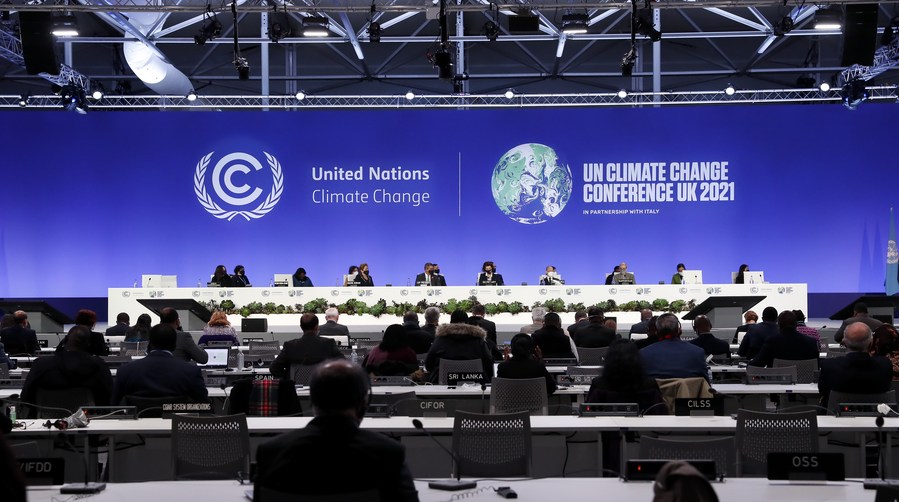China's goodwill in climate cooperation: China Daily editorial


China-United States interaction these days has not been as constructive as it needs to be for any productive engagement.
And the economic woes universally felt amid the pandemic have not been conducive to any new, significant commitments at the 26th session of the Conference of the Parties to the United Nations Framework Convention on Climate Change, generating a generally gloomy mood.
So the unveiling of a joint agreement on cooperation to accelerate climate actions and tackle global warming by the climate envoys of China and the US on Wednesday has come as a pleasant and welcome surprise to many.
In the China-US Joint Glasgow Declaration on Enhancing Climate Action in the 2020s, the two parties pledged to continue working together and with all parties to strengthen the implementation of the Paris Agreement. That the two largest carbon dioxide emitters in the world have, as Chinese climate envoy Xie Zhenhua and his US counterpart, John Kerry, emphasized, risen above their other differences and decided to join hands to combat climate change is indeed a blessing not only to the Glasgow meeting, which is entering its final days without making much impressive headway, but also to the global climate response, about which many have grown pessimistic seeing the China-US stalemate.
These are precisely what Beijing has insisted are part of the obligations China and the US must shoulder as "major countries".
It is a growing consensus that the window of opportunity is rapidly closing for meaningful actions to mitigate global warming before it is too late. Any further feet-dragging will be devastating to the future of all life on Earth. It is reassuring to hear from the two key emitters that they "recognize the seriousness and urgency of the climate crisis", especially during the "critical decade of the 2020s", and will work together.
The newly reached agreement on climate cooperation will certainly inspire constructive interactions between the two sides, and facilitate more sensible, responsible actions, which in itself will be a boost to the global climate response. More important, they may provide fine leadership that has exemplary impacts worldwide.
It is no secret that there has been a protracted, though fruitless, blame game going on between Beijing and Washington, over but not limited to who should have done what. That they seem to have more or less returned to the principle of common but differentiated responsibilities and respective capabilities as well as taking into account national conditions represents a significant step forward.
A gap exists not only between the current efforts and the Paris Agreement's requirements, but also between countries' rhetoric and actions. Hopefully, the joint will being demonstrated by China and the US can be translated into practical actions that will start to remedy this.


































